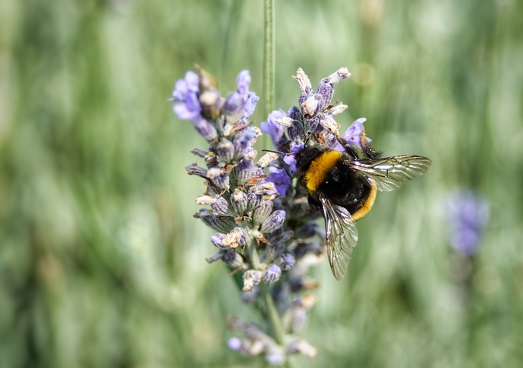Wednesday 17 April 2019
Although there is still a lot to do to deliver the transition to a cleaner, low carbon, more flexible energy system, it does sometimes feel that the seismic plates in energy have shifted and that the outcome is inevitable. That should not be taken to mean we can relax – not only is there a lot to do to deliver existing and new technologies, business models and regulation – we still have to combat the resistance of the old guard who as in any paradigm shift spread confusion and fight to hang onto their positions. However the other dimensions of improving sustainability cannot be ignored. Earlier in the year we saw the report on how “rapidly declining insect populations could threaten the collapse of nature” which reminded me of the book “Wilding” which I read recently.
‘Wilding’, which I highly recommend, tells the story of Knepp Castle Estate in West Sussex which since 2001 has switched from traditional intensive (and unprofitable) agriculture to rewilding which has resulted in an incredible increase in biodiversity. The approach is to establish a functioning ecosystem and let nature get on with it – rather than target specific goals or species. Knepp has seen great increases in bio-diversity and become a breeding ground for several species that were absent or in severe decline including, purple emperor butterflies, turtle doves, nightingales and 13 out of the 17 UK resident species of bats.
Rewilding Britain define rewilding as follows:
Rewilding is the large-scale restoration of ecosystems where nature can take care of itself. It seeks to reinstate natural processes and, where appropriate, missing species – allowing them to shape the landscape and the habitats within.
Rewilding encourages a balance between people and the rest of nature where each can thrive. It provides opportunities for communities to diversify and create nature-based economies; for living systems to provide the ecological functions on which we all depend; and for people to re-connect with wild nature.
https://www.rewildingbritain.org.uk/rewilding/
Attaining greater sustainability requires ensuring we have food supplies as well as protecting the environment, objectives that can clearly be in opposition to each other. The food production system is essential infrastructure, although it is not usually characterised as such. As in other areas of infrastructure we are seeing a shift towards digitisation, we are also seeing a shift towards production of food in controlled environments. Like producing buildings, producing food in a controlled environment rather than out on site makes a lot of sense and the ability to control environments, possibly in an urban location, can raise productivity as well as reduce resource input for production and transportation.
The idea of the environment created by large-scale farming as being somehow natural, an idea we all grew up with, is clearly wrong – the agricultural environment is as man-made as the inner city and maybe it is largely incompatible with truly protecting nature. The combination of food production in a controlled environment and rewilding provides a clear direction of travel. We need to greatly ramp up food production in controlled environments, out of the field and into the converted warehouse, and then rewild former agricultural land.
Our vision should be healthy food for all produced in controlled and efficient environments enabling large areas of the land and seas to be rewilded.

Comments
Comments are closed.
Dr Steven Fawkes
Welcome to my blog on energy efficiency and energy efficiency financing. The first question people ask is why my blog is called 'only eleven percent' - the answer is here. I look forward to engaging with you!
Tag cloud
Black & Veatch Building technologies Caludie Haignere China Climate co-benefits David Cameron E.On EDF EDF Pulse awards Emissions Energy Energy Bill Energy Efficiency Energy Efficiency Mission energy security Environment Europe FERC Finance Fusion Government Henri Proglio innovation Innovation Gateway investment in energy Investor Confidence Project Investors Jevons paradox M&V Management net zero new technology NorthWestern Energy Stakeholders Nuclear Prime Minister RBS renewables Research survey Technology uk energy policy US USA Wind farmsMy latest entries
- ‘This is not the end. It is not even the beginning of the end. But it is, perhaps, the end of the beginning’
- You ain’t seen nothing yet
- Are energy engineers fighting the last war?
- Book review: ‘Stellar’ by James Arbib and Tony Seba
- Oh no – not the barriers again
- Don’t assume ignorance, sloth, bias or stupidity
- Collaborations start with conversations


